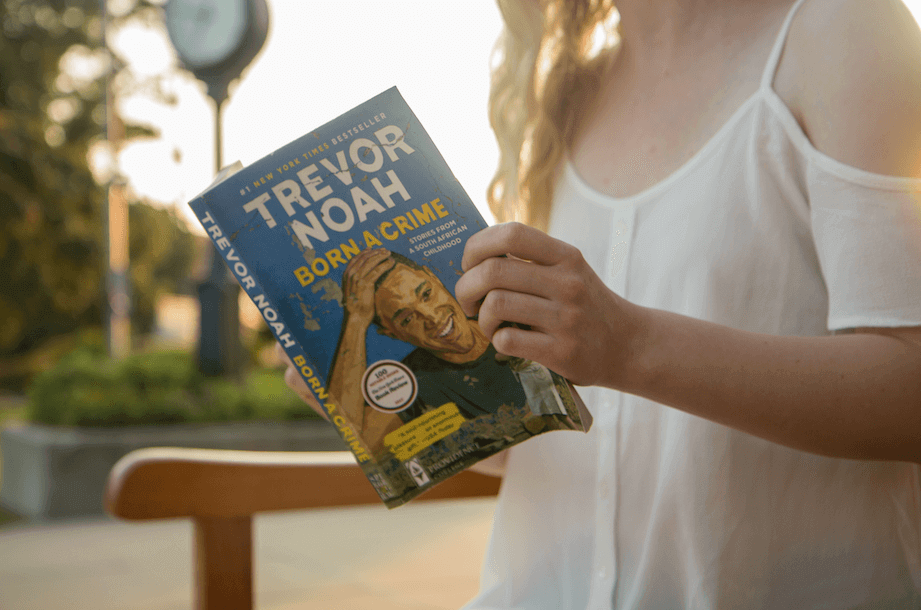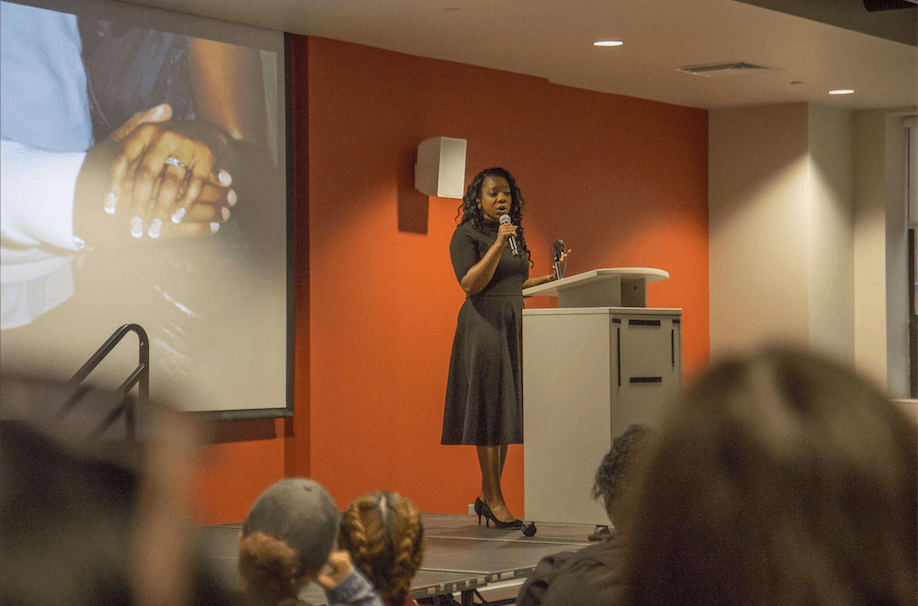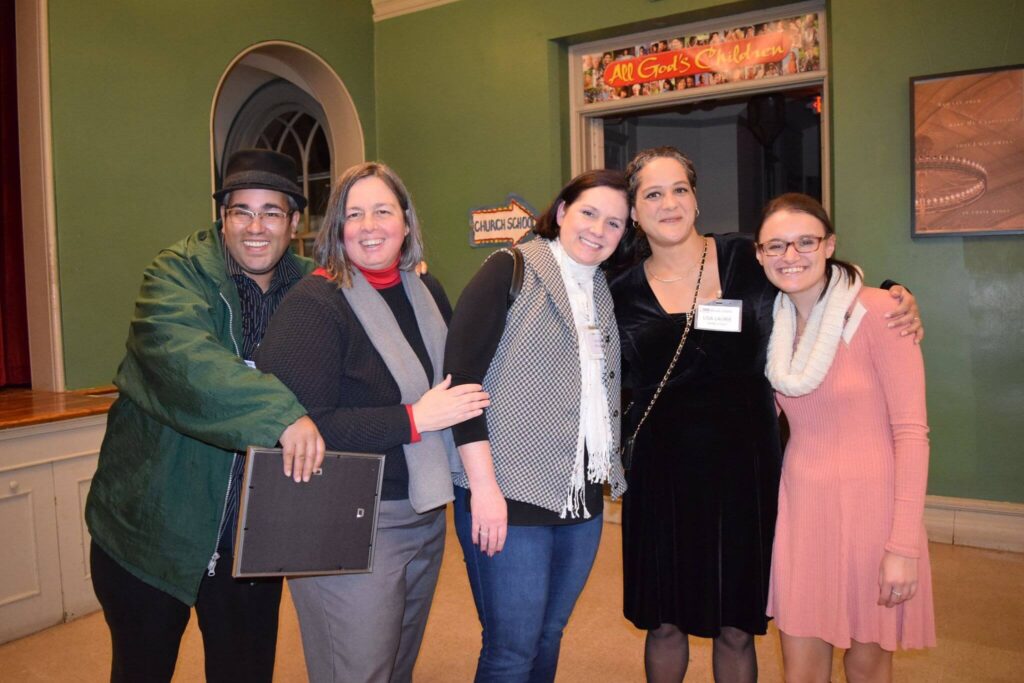Tag: Hannah Paxton ’19
Reevaluating International Tragedies: Spread Awareness, Not Instagram Photos
by The Cowl Editor on May 2, 2019
Opinion

by Hannah Paxton ’19
Opinion Editor
In light of recent tragedies, like the burning of the Notre-Dame de Paris Cathedral and the attacks in Sri Lanka that occured on Easter, it is interesting to see what types of events elicit a reaction from the world, especially from those who have the resources to evoke change.
On April 15, the roof of the Notre-Dame caught fire, and the world was watching. It was plastered on every screen, every news channel, and across every platform of social media. Pictures of a beloved church burning shocked and unsettled millions.
In response to this heartbreaking event, donors, led by three of France’s wealthiest families, are prompting fundraising efforts in order to restore the damage, topping $700 million. These wealthy donors pledged within 24 hours of the incident.
Meanwhile, recent assaults on churches and hotels in Sri Lanka on Easter Sunday as well as the Chabad of Poway synagogue in San Diego, California last Saturday, have no reported wealthy donations promised for relief efforts.
Evidently, these events have received ample news coverage and fundraising endeavors, but not to the same scale that the Notre-Dame fire collected, and with such an instantaneous response.
With this in mind, it is worth reflecting on what issues constitute millions of dollars worth of philanthropy. There is no question that the burning of the Notre-Dame is an appalling crisis, and worthy of attention.
Yet incidents like those in Sri Lanka and California happen frequently, almost every day, that do not only affect revered structures, but hundreds, and sometimes thousands of people.
When Notre-Dame was on fire, many rushed to post pictures of their visit to the cathedral from their experiences abroad on Instagram. They remarked on the sadness they felt to see a cherished building become tarnished.
While this is a kind gesture, it does little to directly aid the rebuilding efforts or even call attention to the tragedy. Instead, it appears to be another opportunity to showcase one’s time abroad.
Similarly, many posted on Instagram photos from spring break or study abroad photos on Earth Day, commenting on the beauty that the world has to offer. Rarely did these photos provide any insight into how we can help protect the planet.
In the age of social media, it is easy to get carried away with what we post, as we are presenting ourselves to the world.
However, when it comes to vital issues that affect human life, we should all make an effort to use these platforms, and whatever resources we have, to save lives.
As college students, potentially with thousands of dollars of debt, it might be difficult for us to lend a hand in aiding relief to places like Sri Lanka and California. But as avid users of social media, we should take advantage of the wide audience to help spread awareness about these issues.
If we care about people and the Earth as much as we claim to on Instagram, then that devotion should be channeled into productive solutions.
Tangents and Tirades
by The Cowl Editor on October 25, 2018
Opinion

Time to Learn Climate Change
Last week, a report released from the Intergovernmental Panel on Climate Change detailed the devastating impacts that global warming has on our planet, and will continue to have unless serious changes are made.
The effects of climate change are wreaking havoc on our planet and it is only going to get worse.
Thinking about how devastating climate change will prove to be in the future is scary, but it is important to start making effective changes now while we still can.
This is not a problem that can be dismissed or ignored any longer, and becoming educated on how to combat climate change is more crucial now than ever.
We do not have to radically change every aspect of our lives: small and simple changes to our everyday lives will eventually make a big difference. Recycling, using less electricity and water, and buying and using less plastic are all easy changes that really do make an impact.
Even bringing reusable cups and straws to a coffee shop makes a difference. We are all responsible for taking care of our planet and making sure it is the best it can be for future generations.
There are no longer any excuses for not being educated on what to do about climate change, and ignoring it will certainly not make this problem go away. We owe it to ourselves and to each other to protect this planet in any possible way we can.
-Bridget Blain ’19
McVinney Showers Need to Cool It
Due to the outdated water system in McVinney Hall, girls have no control over the water temperature, for when the valve trim may be set to cold, the water can unexpectedly become boiling.
It is a known fact amongst McVinney residents that if someone flushes the toilet while you are showering, the water temperature will increase rapidly, burning your skin.
One hack that residents have learned is that the last two showers on each floor, for some reason, have a somewhat controllable temperature, resulting in a constant line to use them.
Showers are supposed to be relaxing, and one could expect that at least we would be able to control the temperature of the water, but thanks to the dysfunctional water system, that becomes an impossible task.
Last Thursday, McVinney’s water system further proved its incompetence as it stopped operating entirely. With 38-degree weather, it was a burden that all the showers had cold water.
However, to try and alleviate the problem, FixIt worked rapidly to fix the problem, and by Friday at 10 a.m. the water system had been fixed. Nevertheless, this was only a solution to the immediate problem, and it did not solve the long-term problem that freshman girls have encountered while taking showers.
-Angela Bueso ’22
Bring Theme Cuisine Back
When the theme station was removed from Raymond Dining Hall, there was supposed to be less traffic, more space, and overall a more open and welcoming atmosphere. However, after nearly two months without it, this has prove not to be the case.
The theme station was well known for its grilled cheese bar, turkey club quesadillas, and other dishes students had a particular affinity for. While these foods will occasionally be featured at the main station, we no longer have the daily option of trying something new.
Instead, our choices are limited to sandwiches, pizza, pasta sauté, and whatever is being served at the main station.
Rather than improving traffic in Ray, the removal of the theme station has made every other line for food significantly longer. Students have to wait twice as long to order a sandwich at lunch.
Oftentimes, there will even be a line outside the door just to swipe your card and enter the dining hall. This used to only be the case on Thursdays for chicken nuggets, but now we have to wait a few minutes just to get inside at peak lunch or dinner time.
With 100 extra students admitted this year, it seems counterintuitive to remove an entire station in the dining hall.
For many students, the meals offered at the theme station were a favorite and provided a satisfactory alternative to the same food that is usually served.
-Hannah Paxton ’19
Tangents and Tirades
by The Cowl Editor on October 4, 2018
Opinion
Problematic Public Proposals
When Glenn Weiss proposed to his girlfriend, Jan Svendsen, during his Emmys acceptance speech, many people took to social media to describe the act as “adorable”and “cute.” Some even said that Weiss’ public proposal was the only type of marriage proposal they would accept from their partner.
Despite how romantic this gesture came across to many viewers around the world, one has to ask whether such an action is in good taste.
Being put on the spot, be it at an awards ceremony or at a sports game, is nerve-racking anyway. Once you add in being asked to make a major life decision, such as marriage, it can be even more stressful.
It puts the individual being proposed to in a potentially uncomfortable position. Do they accept the proposal no matter their feelings to avoid embarrassing their partner, or do they reject the proposal in front of such a large audience, embarrassing both themselves and their partner?
Viewers also have some secondhand apprehension, hoping that the marriage proposal ends positively when really it is not their business since they do not know about the relationship at all.
While public proposals usually have good intentions, it is always important to consider how one’s plan of proposing is going to make their partner feel. Marriage proposals can be cute, adorable, and memorable without having an audience to watch it play out.
-Joshua Chlebowski ’21
Dorm Bathroom Etiquette
From the earliest stages of life, children learn how to properly use the bathroom. How is it that when we reach the age that constitutes adulthood, we suddenly forget such etiquette?
When we enter college, we are sharing a communal bathroom for possibly the first time ever. There are around 30 other people sharing the same facilities as you.
Remember this the next time you go to leave toilet paper on the floor. Remember this when you finish brushing your teeth and notice the leftover toothpaste in the sink.
In the first few weeks of school it is especially difficult to make this adjustment. You have come from a house in which you only shared the bathroom with your family. For this reason, you were most likely more comfortable with leaving it however you wished. Now, however, things must change. There is more responsibility on us as adults to maintain clean living conditions. It truly should not be difficult. Since we were all able to get into college, we are fairly capable of achieving these goals.
Sure, it’s important for you to feel comfortable in the place you live, but remember that your comfort isn’t the only aspect you should be worried about. There are other people who want to feel that same comfort in the same bathroom as you.
Not to mention, there are many men and women who work hard to keep our bathrooms in the best shape. Keep this in mind when you leave the toilet paper on the floor or the paper towels anywhere but the trash.
-Julia McCoy ’22
Live in the Moment
Along with all the stress of being a senior in college comes the tendency to ignore new opportunities or an unwillingness to try new things. We become so focused on life after graduation that we forget about our lives now.
Considering that it is our final year at Providence College, it is difficult not to think about our futures. Eight months from now, we will be entering the real world of jobs, salaries, and independence. All the more reason why we should enjoy our time with friends while we still have it.
Now is the time to go to that restaurant you had been meaning to try since freshman year. Attend men’s and women’s hockey and basketball games.
Prioritize your mental health, whether that be an extra hour of sleep or buying too much Ben and Jerry’s. Spend time with friends you do not see that often. Explore the city, especially because, for many of us, this will be our last time living here.
After four years of living at PC, we often take the little things for granted—the view from Guzman hill, sunsets over the Slavin Center, iced coffee from Dunkin’ every morning.
We are so accustomed to this being our lives that we rarely think about the fact that some day these will all be memories.
Make the last year at PC meaningful, however that may be.
-Hannah Paxton ’19
Tangents and Tirades
by The Cowl Editor on September 20, 2018
Opinion

Be Aware of Events Outside PC
On a small campus like Providence College, it is easy to forget about everything else that is happening in the world.
We hear stories and read headlines every day, but most of the time it is merely background noise or only given a single glance. We become so focused on our own lives and the situations that directly affect us that we become blind to significant events in other parts of the country.
When we hear about events like Hurricane Florence, we are quick to post our condolences on social media. We sympathize in the moment, but how often do we really stop to think about it?
Nearly 20 deaths have occurred since the storm’s start, and more than 450 people have been rescued after being stranded in the floodwaters. With all these statistics, people become reduced to numbers.
Tragedies happen every day, but it is important to remember that there are human beings involved.
A crisis like Hurricane Florence should not be forgotten after the click of a mouse. Even the smallest gesture can make a big difference, such as donating a few dollars to help with relief.
Whenever there is a critical event reported in the news, do not change the channel or continue scrolling.
Instead, take the time to educate yourself and learn about what is happening around you, because our bubble should be so much larger than PC.
-Hannah Paxton ’19
Reading Quizzes Arenít Objective
Regardless of major or grade, the routine reading quiz is an unavoidable stressor to any Providence College student.
Most professors assert that the sole function of any reading quiz is to assess that students have attentively read their assigned homework.
However, lately students have complained that their reading quizzes require more a than just a basic comprehension of the text.
Professors are assigning reading quizzes that call for students to demonstrate an acute understanding of the reading through short response questions or an in-depth analysis of a quote or selection.
Additionally, many students complained that answers to their “reading quizzes” tend to be highly subjective, thus their responses are marked incorrect if their interpretation of a text is not adequately aligned with their professors.
While students should eventually be able to achieve an in-depth comprehension of an assigned text, is it justified that they should be responsible for proving an advanced level of understanding upon a first reading?
If a professor is going to advertise an assessment as a “reading quiz,” it is only fair that the assignment be highly objective and straightforward enough that a sufficient grade will be attainable for any student who diligently read the text.
Ideally, a more complicated assessment evaluating a deeper comprehension of the text could be assigned to students after they had the opportunity to discuss the text with their professors and peers. In turn, they will reach more enlightened conclusions about their assigned readings.
-Alyssa Cohen ’21
Tangents and Tirades
by The Cowl Editor on September 13, 2018
Opinion

Give Students More PC Prints
Any alternative to buying over $200 worth of textbooks per semester seems worth it. This includes printing out packets of reading for every class.
Initially, $40 worth of PC Prints appears to be more than enough to cover five classes. But before you know it, you find yourself adding money by the third week of the semester.
While it is a tremendous help to students to be given money to cover printing costs, it is unfair for those who might take four or more classes that contain a hefty amount of reading.
Many students prefer to have physical copies of their assignments so that they are able to mark the paper and make notes. However, this becomes impossible when they use up their $40 within the first couple of weeks.
Students who major in subjects such as English, history, or political science often have extra readings on top of textbooks, and with two or three classes a week, the cost becomes significant.
In order to better assist students with this predicament, it would be helpful if they were given more PC Prints at the beginning of each semester.
This would help to alleviate any stress that comes along with having to mentally budget the amount of money students can spend for each class or week. The $0.08 cents per page does not seem like a lot, but over time it adds up.
-Hannah Paxton ’19
Don’t Stress About Senior Events
Senior year of college is notorious for being the most fun and laid-back year. However, at times, the stress and chaos can be overwhelming.
Whether you are trying to find a balance between studying for the LSATs and spending quality time with your friends, or choosing between doing homework and picking out the insane amount of outfits that are needed for Senior Ring Weekend, it is a lot for any Providence College student to handle.
Senior year is full of exciting events, however, it is almost too easy to get caught up in the stress of preparing for it all that these events can become difficult to actually enjoy.
It is hard not to get caught up in the little moments of stress when homework is piling on and the countdown to SRW is getting shorter and shorter, but this is when self-care is crucial.
Sometimes we all just need to take a break. This is true at any point in the semester, but especially so in the beginning when you are so excited to be back that you just want to dive in and say yes to every opportunity.
In order to really enjoy every moment of college, we all need to be the best, least-stressed versions of ourselves.
Try not to panic when it starts to feel like there aren’t enough hours in the day for you to get everything done.
Take a step back and treat yourself to something that helps you relax. The world would not stop spinning because you took a break to watch your favorite show for an hour or two.
-Bridget Blain ’19
Serena Williams Speaks Out
“I have never cheated in my life,” she said. “You owe me an apology.”
Serena Williams spoke these words to the chair umpire, Carlos Ramos, while competing in the 2018 U.S. Open Women’s Championship final this past weekend.
Her comments, delivered directly to the umpire while she was on the court, earned her a warning and set off a series of other penalties for the tennis star—including a point penalty and a game penalty. In total, Williams was fined $17,000.
Her comments are raising critical questions about the fairness of the rules of tennis, and moreover about the discrepancies in how women—especially women of color—and their male counterparts are treated.
If Williams were a white man, like tennis player Novak Djokovic, would her actions have incurred the same penalty, or any penalty at all?
It is critical that we continue to ask questions like these, because they apply not just on the tennis court, but in real life as well. Now is not the time to ask whether Williams’s so-called “outburst” occurred in the appropriate forum or if her comments were delivered in the wrong place and the wrong time.
Where and how she delivered her comments should not distract from the real social problem at hand, nor should it detract from the valuable lesson this incident offers.
In the end, Williams was just a woman in her own workplace, and she spoke up against what she rightly viewed as an injustice. In that way, her bravery and boldness are things we can all learn from.
-Andrea Traietti ’21
PC’s Common Reading Program Fosters Diversity
by The Cowl Editor on August 30, 2018
Campus

by Hannah Paxton ’19
Opinion Editor
“We tell people to follow their dreams, but you can only dream of what you can imagine, and, depending on where you come from, your imagination can be quite limited,” says Trevor Noah in his autobiography, Born a Crime, the assigned book for Providence College’s Common Reading Program this year.
Regarding diversity in experience and beliefs, high school can be rather narrow in scope. Students can be ignorant to their peers’ upbringings.
College is the perfect place to come to the understanding that not everyone shares the same life experiences and opportunities.
In preparation for one of the most life-altering transitions, summer reading is one of the last priorities for incoming freshmen. Assigned reading over the summer seems redundant, as it defeats the purpose of having a break from school.
However, summer reading does not have to be agonizing. With the right book, it can be engaging, informative, and even mind-opening.
Noah’s autobiography provides a unique perspective of a man born in a time when biracial unions were condemned with imprisonment.
Although comical, the book is very poignant in its recounting of Noah’s upbringing and demonstrates the reality of living in a struggling, biracial family.
Particularly over the past couple of years, PC has put an emphasis on diversity and inclusion. The College’s website states “diversity is a key component of our collective pursuit of truth, promoting rigorous exploration of diverse ideas and theories, critical engagement with the world…and collaboration across differences within and beyond the classroom.”
The perfect way of introducing new students to one of the College’s core ideals is by giving them the opportunity to read about it.
The common reading program should preview what PC seeks to offer, and books like Born a Crime do just that.
In the past, the College has assigned I Am Malala, an autobiography of Malala Yousafzai who, like Noah, is a well-known figure among the younger generation.
People like Yousafzai and Noah draw large audiences primarily for their unparalleled and inspiring experiences, which make stories like theirs all the more compelling and necessary to read.
By assigning more books like Born a Crime, the College provides new students with a fresh perspective on diverse backgrounds in a way that is appealing and relatable.
In a time where it is more important than ever to become more politically and socially aware, Born a Crime offers new insight into a distinctive point of view—that of a biracial man with a troublesome upbringing who eventually went on to have a successful career.
Not everyone in Noah’s position shares the same degree of public recognition and achievement; however, his story is important because it helps the reader understand the harsh reality a child can face growing up with parents of different races.
Many students leave high school with a limited awareness of backgrounds outside their own race, ethnicity, religion, gender, or class.
College is meant to prepare young people for a larger world, and the only way to do that is by giving them the knowledge and resources they need to better understand the world.
Ending Victim Blaming: No One Should Have to Explain #WhyTheyStayed
by The Cowl Editor on April 26, 2018
Campus

“Imagine falling in love and being happy, and then something goes terribly wrong,” said Beverly Gooden to a room full of Providence College students in Moore Hall. Understanding the trauma of domestic violence is nearly impossible except if you yourself are a victim of abuse. It is easy to see two people who seem so devoted to one another and to never have any idea of what the real story is.
Last Wednesday, Gooden, who started the #WhyIStayed movement on Twitter, spoke to an audience about her own experience with an abusive partner and how she managed to escape. Perhaps one of the most important takeaways from her talk was the emphasis on victim blaming.
Whenever we witness or hear about abusive relationships, the question is always “Why don’t they just run away?” or “Why don’t they leave?” as though walking away from the person who hurts you emotionally, physically, or verbally on a daily basis is that simple.
Placing blame on the victim absolves the abuser entirely of responsibility. It normalizes not only their abusive actions, but their harmful behavior as well. The question is always “why did they stay?” when it should have been “why did their partner hurt them?”
The position of blame in abusive relationships defines the manner in which abuse is discussed. If we standardize the treatment of abusers to their victims, then victims will also start to standardize this treatment. If they are punished for something as straightforward as not doing the dishes, then they might truly believe they are worthy of abuse. If an abuser tells the victim that he or she is doing something wrong, he or she will believe it without question.
When we see an abusive relationship, it is easy for people who are removed from the situation to point fingers and to try to provide a solution. But abuse is not transparent.
“I believed him every time he said he was going to change,” Gooden said about her ex-husband. To someone who has never been in that kind of relationship, this statement might seem unbelievable. But we have to remember that victims of abuse are usually in love with the perpetrator, and often times feel very dependent on them.
If we want to put a stop to sexual assault and domestic violence, we need to shift the conversation away from victim blaming. When the victim is condemned, they feel guilty for any resentment towards their abuser, or maybe even for attempting to escape the situation.
Trying to leave an abusive relationship is much more difficult than it appears on the surface. Not only could it be physically impossible, but it might also be emotionally draining for the victim. If they are in love with the offender, they may feel a strong attachment to them and do not ever want to disappoint them. In some cases the abuse could even escalate if they try to escape.
If you know someone who is or has been in abusive relationship, remember that the fact that they are staying is never their fault. Our efforts should instead be directed towards actually helping them to get out of the relationship in the safest way possible. Ideally, there will be a day where no one ever has to explain why they stayed.
Ending the Stigma
by The Cowl Editor on April 12, 2018
Editorials

by Hannah Paxton ’19
Asst. Opinion Editor
“Mental illness has nothing to do with if you’ll be successful or not,” said Brown University graduate student, Seth Akers-Campbell. Last Wednesday’s “Inside Mental Illness” event, presented by the National Alliance on Mental Illness, featured Akers-Campbell and other speakers who shared their personal experiences with various mental illnesses. They emphasized the importance of recognizing one’s worth regardless of their mental health.
While their stories were all different, one common theme among them was the ignorance and stigma associated with mental illnesses. Many do not realize that mental illnesses are in fact biological and hereditary, even if symptoms are not yet present in early childhood. Because symptoms are not always obvious, it is easy to think that depression, anxiety, or other disorders are something that can be managed effortlessly.
However, this is not the case. When listening to the story of someone who experiences mental illness, it becomes apparent that it can be just as inhibiting as any physical disorder.
“From the outside in, it didn’t look like anything,” Akers-Campbell said when explaining how he first discovered that he had a major depressive disorder. When someone has depression, the signs will not always be overt. They could appear to be perfectly fine at school, showing no indication of feeling unwell. But then when they are at home, they isolate themselves in their room, go long periods of time without eating, or display a lack of concentration.
Because the majority of the symptoms are not overtly recognizable, depression is often not taken as seriously as a bodily affliction, like a broken leg or having the flu. When signs are largely ambiguous, one might feel as though no one truly understands the gravity of their situation.
People with mental illnesses are often labeled as “lazy” or “pessimistic” when they should be “lively” and “motivated,” as though their attitude is something that can be changed with a few words of encouragement. But to ask that of someone with depression is like asking someone with a broken hand to write their name.
When Lea Knizek ’17 shared her background with anxiety, she noted how hopeless and insignificant she felt, and how she never told anyone about her situation until her sophomore year of college. If you are not personally experiencing a mental illness, it is hard to fully comprehend just how much it affects your life.
Society tends to brush mental illness under the rug, away from discussion. But we cannot truly understand it if we do not take the time to listen to those who have anxiety, depression, and other mental disorders. When we listen, we realize that it is wrong to use mental illness as a measure of worth or success.
Even when life is difficult, people with mental illness should not be judged on whether or not they have a stable job, financial balance, or other indicators of a “successful” life. Perhaps they are still living at home after school, or maybe they are taking a semester off. This does not mean that they are lazy, but rather that they are getting the treatment they really need. As Knizek said, “If you’re at the end of your rope, things do get better.”
Tangents & Tirades
by The Cowl Editor on March 15, 2018
Opinion
The Importance of Keeping Cool(ey)
If there is one image that exhibits the stress Friar fans experienced watching the Big East Championship game last Saturday, it is Providence College Men’s Basketball Head Coach Ed Cooley ripping his pants. Whether you were watching in the world’s “most famous” arena or from your couch, there is no doubt that everyone was on the edge of their seats the entire time.
After the big win on Valentine’s Day, many felt confident that the Villanova University Wildcats would see the Providence College Friars as a major threat at Madison Square Garden. While it took some time for the Friars to catch up, we managed to surpass Villanova’s score towards the end of the second half.
In a stressful last couple of minutes, Cooley’s pants ripped. Despite this considerable wardrobe malfunction, Cooley was able to keep his cool. Before everyone even had time to process what just happened he had a towel tucked into his pants. He still paced up and down the court, focusing on the game as if there was no problem at all.
In light of this event, we should try to keep Cooley’s attitude in mind. If you feel disappointed in PC’s defeat, remember that the coach of our men’s basketball team managed to persevere in spite of unfortunate circumstances. We should focus on what is truly important—that we did not let Villanova win so easily, and that the Friars will be in the NCAA Tournament.
-Hannah Paxton ’19
Oh Snow! No Day Off?
Winter time in New England enchants students with the possibility of snow days. Even college students, weathered by years of disappointment with would-be blizzards that turned out to be light dustings, still get excited by the chance that rogue meteorologists can scare school administrators into cancelling classes.
Yet it would be much more beneficial for students if they just completely removed all expectations for snow days. Ever. As in: put away the snow-day calculator, stop checking the Weather app every three and a half minutes, do not wear your pajamas inside-out. It might seem fun or cute to obsess over just maybe having a snow day two Fridays from now, but you are really only setting yourself up for disappointment and misery each day you actually have school.
Think about it. You are just going to be sad and unhappy that you have to sit through classes each time school does not get called. But the opposite is true as well. If you never even consider the possibility of classes being cancelled, and one day, it suddenly is, imagine the joy and bliss that you will get to experience as you turn off the alarm on your phone, close your eyes, and drift slowly back to sleep. It feels like heaven.
Yet none of that good stuff is possible if you expect a foot of snow every third school day. So don’t worry about the weather. Just expect to be in class, and when you do not have to be, enjoy those extra of hours of bliss like they are a gift from the skies.
-Kevin Copp ’18
More Crosswalks On Campus
As struggling college students who scrape up change to buy another pack of microwavable ramen noodles, we have all made that joke about jumping in front of a car on PC’s campus to get our tuition paid for. However, this could become a real possibility if Providence College does not put in crosswalks and speed bumps on the roads near Raymond Dining Hall and the Ray and Aquinas housing dormitories.
Both the drivers and the pedestrians tend to stray from the rules of the road in this area of campus. Students walk everywhere on a college campus, especially on the streets that run through campus, despite traffic from cars. However, as there are few designated crosswalks in this specified area, students walk wherever and whenever they’d like, regardless of automobile traffic. This actually turns into a vicious cycle, as cars driving through campus often go much faster than they should. This combination can prove to be threatening to both sides.
Although no one has been severely injured as a result of the current set-up, it is always better to be safe than sorry. Therefore, more crosswalks would make students more likely to use them as they would not be going too far out of their way to reach them. In addition, speed bumps would force drivers to slow down. Placing these near each other would be especially helpful in making Providence College an even safer campus.
-McKenzie Tavella ’18
Tangents and Tirades
by The Cowl Editor on March 1, 2018
Opinion
Respect the Ray Staff
As college students who eat the majority of their meals in a dining hall, it is easy to take advantage of the fact that we rarely have to make food for ourselves.
Even if our parents are the ones who cook for us at home, it is more convenient to be able to pick up food at any given time without having to wait.
Most of the time, we only speak to the staff in Raymond Dining Hall when we are saying “hello” or “thank you.”
Because of this, it might seem inconsequential to leave food on the tables or spilled drinks on the floor. While we may not necessarily expect someone else to pick it up for us, we also do not take the time to clean up after ourselves.
Regardless of the job descriptions of the dining hall staff, they should not have to be responsible for cleaning up the messes we make.
No matter how much of a rush we are in to get to class, it only takes a couple more seconds to throw our napkins in the trash or pick up food that fell off our plates.
The Ray employees work very hard all day, so it should not be difficult to make their jobs a little easier.
-Hannah Paxton ’19
Mo(o)re Hall Hours
The renovation of Moore Hall was much-needed and even more appreciated. Its renovation is especially convenient for those who live in buildings near Moore Hall and are looking for somewhere close to study during the cold winter days. It is the perfect alternative to the very overcrowded and often distracting Slavin Center.
However, unlike Slavin, Moore closes at 1:30 a.m. every school night, a fact that makes absolutely no sense whatsoever. If Providence College allowed students access to the building at any point in the night, it would actually encourage students to study for longer hours if needed. It also provides a shorter walking distance for many students in comparison to walking to or from Slavin.
In fact, Slavin does not even have the academic equipment that is offered in Moore Hall, yet it continues to be prioritized over a building like Moore that is more centered on studying than socializing.
Most importantly, Moore is supposed to be a center for students to use in order to study at their convenience, and all students have different hours in which they prefer to do work. It is a student center for a reason: to be for the students. It is quite difficult studying in a dorm room late at night whether it may be because our roommates are sleeping or because the room is distracting.
In addition, it can also be hard at times to study in the dorm lounges because it allows for a lot of distractions from friends who also live in the same building. If it were up to the students, Moore Hall would be open 24/7. So this begs the question—who makes these executive decisions and why are the students not involved in the decision-making process? Something needs to change!
-Laura Arango ’20
Free the Weekend Packages
Is there anything worse for a Providence College student than waking up on a Saturday morning (or maybe afternoon) to a notification that you have had a package delivered to the package room?
What seems like an exciting event quickly sours when you remember that the package room is not open on Saturdays or Sundays and that your poor package must sit, lonely and unclaimed, on the cold metal shelves of the package room for 48 hours until those doors are blessedly unlocked Monday morning.
It is a cruel irony to realize that your package is waiting, but you can do nothing in your power to collect it. This is an irony made all the worse when you realize that whoever sent your email must be in the package room, but yet you are still barred from uniting with the care package from your parents or your latest impulse purchase from Amazon Prime for two more days.
I am not asking for much. I know the package room workers are busy and that allowing students to claim parcels on Saturdays will only make their jobs more hectic. But even opening the package room for student pick-ups for a couple of hours on Saturday would lessen the pain of receiving an email notification on Saturday morning and having to spend two full days staring forlornly at the obstinately locked doors until you can free your purchase.
-Taylor Godfrey ’19

